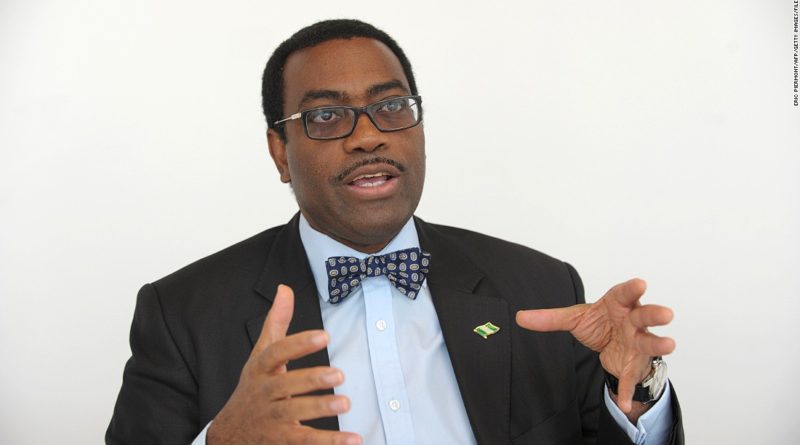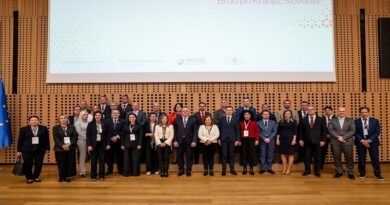AfDB takes landmark lead on formation of Africa Financial Alliance for Climate Change
Scientific evidence shows that African economies are already reeling from the devastating effects of climate change, further exacerbating their development challenges. Of the 10 countries in the world that are most threatened by climate change, seven are in Africa.
Cognizant of this situation, the African Development Bank led the way to what may turn out to be Africa’s most decisive action to ensure that the continent is not short-changed by climate finance.
At the 53rd Annual Meetings of the Bank, in Busan, Korea, the institution brought stakeholders together for an “open dialogue” to discuss the establishment of the Africa Financial Alliance for Climate Change (AFAC). The initiative was well received by key continental and global stakeholders who agreed with the Bank that Africa needs immediate climate change action.
“The establishment of the African Financial Alliance for Climate Change is a call for us to stand together to mobilize climate finance at scale to meet the needs in Africa,” Akinwumi Adesina, President of the African Development Bank, said Friday.
The 2015 Paris Climate Agreement calls on countries to increase their ability to adapt to the adverse impacts of climate change without threatening food production, and make financial flows consistent with a pathway towards low greenhouse gas emissions and climate-resilient development.
“As Africa’s premier development financial institution, the African Development Bank is already taking action. The Bank is leading Africa’s transition to climate resilient economies,” he said. “The financing needs to meet the ambitions of the Paris Climate Agreement in Africa are enormous. The implementation of Africa’s Nationally Determined Contributions (NDCs) would require investments of at least $2.7 trillion for mitigation and another $488 billion for adaptation by 2030.”
The international community has pledged to mobilize $100 billion in climate finance per annum by 2020 to support adaptation and mitigation projects in developing countries. However, of the US $820 billion in climate finance flows for 2015 and 2016, only US $16 billion was for Africa. This represents a mere 2% of the total.
“This is why the African Development Bank is hosting this open dialogue to initiate the establishment of the African Financial Alliance for Climate Change as a call for us to stand together to mobilize climate finance at scale to meet the needs in Africa,” Adesina added.
He noted that the Bank could not achieve the task alone, pointing out that without achieving the Paris Climate Agreement in Africa, the world will not achieve the required reductions in greenhouse gases to keep global temperatures below the required target.
The Alliance brings together Africa’s financial sector, including Ministers of Finance, Central Banks, insurance and reinsurance companies, sovereign wealth and pension funds, stock exchanges as well as global thought leaders to mobilize climate finance for Africa. It also hopes to come up with concrete proposals to mobilize both domestic and international finance for climate-resilient development in Africa. “Together, we can create a Decarbonisation Index for Africa,” President Adesina told the meeting.
“The idea of having the Alliance is a fantastic one, because we recognize that the world is also looking to us. While Africa is not the primary cause of the climate change that we see in the word today, we are the continent where the impact is very great, and the world is not as prepared to finance us to take care of this impact. We can’t let it go because it is our people who are suffering,” said Ngozi Okonjo-Iweala, Chair of the Africa Risk Capacity (ARC).
“Just for you to know the impact of climate change, of all the drought that occurs in the world, 41% occurs on the African continent. We lose about 485,000 people to indoor pollution, premature deaths that could have been avoided and also the devastating impact caused by flood. I can go on and on.”
The President of the Development Bank of Southern Africa (DBSA) and Chair of the Association of African DFIs, Patrick Dlamini, observed that collaboration was crucial to catalyzing funds and making a difference. “This is possible under the leadership of the African Development Bank. We can then play our role as development finance institutions to being the policy instruments of our various Governments and in alliance with partners.”
The CEO of the Global Environment Facility (GEF), Naoko Ishii, pledged the support of her organization for the Alliance and was optimistic that it would motivate the GEF to do much more for Africa.
For his part, Howard Bamsey, CEO of Green Climate Fund, said, “The Alliance is a fundamental step towards meeting the climate change challenge in Africa. There has to be an African solution to the challenge that we face and this initiative presents the opportunity to mobilize that.”
The Africa Financial Alliance for Climate Change will be launched on the margins of the Africa Investment Forum in South Africa, November 7 to 9, 2018 and will bring together heads of financial institutions.




